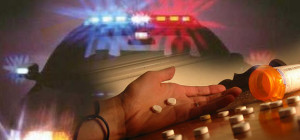By H. Michael Steinberg Colorado Drug Crimes Criminal Defense Lawyer
In 2016, the Colorado State Legislature passed H.B. 16-1390 (Effective date August 10, 2016. This bill contains several sections but the purpose of this short article is to call attention to an addition to the law’s exemptions from criminal responsibility and grant of immunity to children who are involved with an overdose situation.
The adult version of the law is found in 18-1-711 CRS, (see below). While not blanket immunity in ALL overdose situations, generally provides that any person who reports an emergency drug or alcohol overdose event is immune from arrest as well as from criminal prosecution for certain drug-related offenses IF certain conditions are satisfied. (Please see the entire law below)
The Juvenile Version Of The Act Is Found In 18-13-122(7)(a) CRS
A Summary of the Bill by the Colorado State Legislature Follows:
Under the act, an underage person who calls 911 and reports that another underage person is in need of medical assistance due to alcohol or marijuana consumption is immune from arrest as well as from criminal prosecution for certain offenses if certain conditions are satisfied. The act also extends immunity to the underage person who was in need of medical assistance.
ADULT Version Of The Colorado Drug Overdose Immunity Bill – 18-1-711
§ 18-1-711. Immunity for persons who suffer or report an emergency drug or alcohol overdose event – definitions
(1) A person is immune from arrest and prosecution for an offense described in subsection (3) of this section if:
(a) The person reports in good faith an emergency drug or alcohol overdose event to a law enforcement officer, to the 911 system, or to a medical provider;
(b) The person remains at the scene of the event until a law enforcement officer or an emergency medical responder arrives or the person remains at the facilities of the medical provider until a law enforcement officer arrives;
(c) The person identifies himself or herself to, and cooperates with, the law enforcement officer, emergency medical responder, or medical provider; and
(d) The offense arises from the same course of events from which the emergency drug or alcohol overdose event arose.
(2) The immunity described in subsection (1) of this section also extends to the person who suffered the emergency drug or alcohol overdose event if all of the conditions of subsection (1) are satisfied.
(3) The immunity described in subsection (1) of this section shall apply to the following criminal offenses:
(a) Unlawful possession of a controlled substance, as described in section 18-18-403.5(2) (a) (I), (2) (b) (I), or (2) (c) ;
(b) Unlawful use of a controlled substance, as described in section 18-18-404 ;
(c) Unlawful possession of two ounces or less of marijuana, as described in section 18-18-406(5) (a) (I) ; or more than two ounces of marijuana but no more than six ounces of marijuana, as described in section 18-18-406(4) (c) ; or more than six ounces of marijuana but no more than twelve ounces of marijuana or three ounces or less of marijuana concentrate as described in section 18-18-406(4) (b) ;
(d) Open and public display, consumption, or use of less than two ounces of marijuana as described in section 18-18-406(5) (b) (I) ;
(e) Transferring or dispensing two ounces or less of marijuana from one person to another for no consideration, as described in section 18-18-406(5) (c) ;
(f) Use or possession of synthetic cannabinoids or salvia divinorum, as described in section 18-18-406.1 ;
(g) Possession of drug paraphernalia, as described in section 18-18-428 ; and
(h) Illegal possession or consumption of ethyl alcohol or marijuana by an underage person or illegal possession of marijuana paraphernalia by an underage person, as described in section 18-13-122.
(4) Nothing in this section shall be interpreted to prohibit the prosecution of a person for an offense other than an offense listed in subsection (3) of this section or to limit the ability of a district attorney or a law enforcement officer to obtain or use evidence obtained from a report, recording, or any other statement provided pursuant to subsection (1) of this section to investigate and prosecute an offense other than an offense listed in subsection (3) of this section.
(5) As used in this section, unless the context otherwise requires, “emergency drug or alcohol overdose event” means an acute condition including, but not limited to, physical illness, coma, mania, hysteria, or death resulting from the consumption or use of a controlled substance, or of alcohol, or another substance with which a controlled substance or alcohol was combined, and that a layperson would reasonably believe to be a drug or alcohol overdose that requires medical assistance.
JUVENILE Version Of The Colorado Drug Overdose Immunity Bill – 18-13-122(7)(a)
§ 18-13-122. Illegal possession or consumption of ethyl alcohol or marijuana by an underage person – illegal possession of marijuana paraphernalia by an underage person – definitions – adolescent substance abuse prevention and treatment fund – legislative declaration
…..
(7) (a) An underage person is immune from arrest and prosecution under this section if he or she establishes the following:
(I) The underage person called 911 and reported in good faith that another underage person was in need of medical assistance due to alcohol or marijuana consumption;
(II) The underage person who called 911 provided his or her name to the 911 operator;
(III) The underage person was the first person to make the 911 report; and
(IV) The underage person who made the 911 call remained on the scene with the underage person in need of medical assistance until assistance arrived and cooperated with medical assistance or law enforcement personnel on the scene.
(b) The immunity described in paragraph (a) of this subsection (7) also extends to the underage person who was in need of medical assistance due to alcohol or marijuana consumption if the conditions of said paragraph (a) are satisfied.
